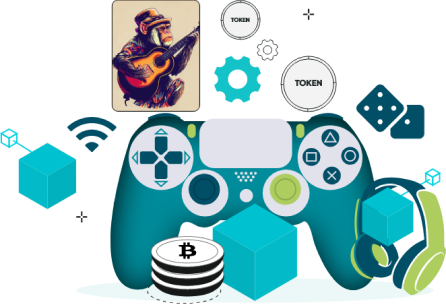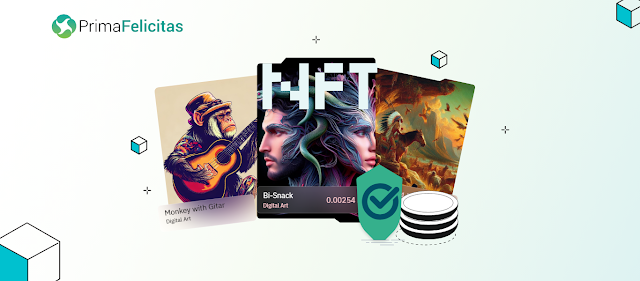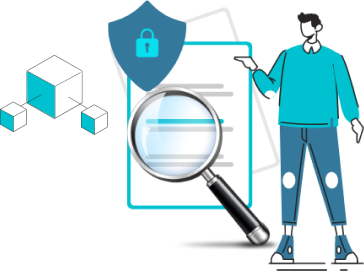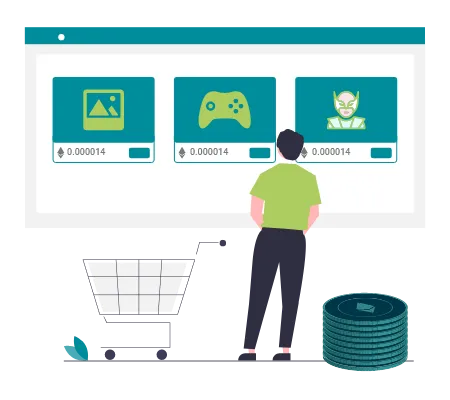Exploring the Future: A Deeper Look into Web3.0 Development Services
In today's digital age, the evolution of technology continues to shape the way we interact with the world around us. As we delve deeper into the realms of Web3.0 development services, we uncover a world of endless possibilities and opportunities for innovation. This blog post aims to provide a comprehensive insight into the realm of Web3.0 development services and explore the role they play in shaping the future of the internet.
Together, these core components construct the backbone of Web3.0, setting the stage for a more inclusive, secure, and user-centric internet. By leveraging the strengths of blockchain technology, Web3.0 development services are crafting a future where digital interactions are more transparent, equitable, and free from the confines of centralized authorities. As we delve into the intricacies of these foundational elements, it becomes evident that the evolution towards Web3.0 is not merely a technological upgrade but a significant leap towards reshaping the internet as we know it.
Non-fungible tokens, or NFTs, introduce a novel concept of digital ownership and uniqueness, enabling the representation of assets in a way that is both verifiable and distinct. This innovation has not only captured the imagination of the art and entertainment sectors but has also opened new avenues for digital identity, ownership, and asset management across various industries.
The Role of Web3.0 Development Services in Shaping the Future Internet
In the dynamic landscape of digital evolution, Web3.0 development services emerge as architects of a new era, meticulously sculpting the contours of the future Internet. These services, extending far beyond the conventional frameworks of online interaction, are pivotal in transmuting the vision of a decentralized digital world into tangible reality. Through the precise application of blockchain technology, smart contract deployment, dApp creation, and NFT integration, Web3.0 development services are not merely participants but are driving forces behind the renaissance of Internet functionalities and user engagement.
At the vanguard of this digital revolution, blockchain development stands as a cornerstone, providing an immutable ledger that ensures integrity and trust in online transactions. This foundation paves the way for the deployment of smart contracts, which automate and secure agreements without the need for intermediaries, thus revolutionizing how contracts are executed in the digital realm. The introduction of decentralized applications (dApps) further underscores the transformative potential of Web3.0 development services. By operating on a peer-to-peer network, dApps eliminate single points of failure and censorship, offering a resilient and accessible platform for users worldwide.
Equally transformative, the integration of Non-Fungible Tokens (NFTs) through Web3.0 development solutions has ushered in a new epoch of digital ownership and asset management. This innovation has not only disrupted the art and entertainment industries but has also provided a secure method of verifying and transferring ownership of unique digital assets, thereby opening new horizons for creativity and commerce in the digital domain.
In essence, Web3.0 development services are not just contributing to the evolution of the Internet; they are redefining the very fabric of digital interaction. By championing decentralization, enhancing security, and fostering innovation, these services are laying the groundwork for an Internet that is more inclusive, equitable, and aligned with the ethos of user empowerment. As such, the role of Web3.0 development services transcends mere technical assistance; it encapsulates a commitment to nurturing an Internet ecosystem that champions user sovereignty and paves the way for endless possibilities in the digital frontier.
Understanding Web3.0 and Its Core Components
Embarking on a journey through the intricate landscape of Web3.0, we uncover its foundation, which is built upon the pillars of decentralization, blockchain technology, and a heightened focus on user privacy and security.
This emergent phase in the digital realm heralds a shift towards a more autonomous and user-empowered online experience. At the heart of Web3.0 lies the implementation of smart contracts, the deployment of decentralized applications (dApps), and the innovation of non-fungible tokens (NFTs), each playing a pivotal role in redefining user interaction within the digital ecosystem.
Smart contracts, with their self-executing and immutable nature, facilitate transparent and efficient transactions without the need for intermediary oversight. This not only streamlines processes but also fortifies trust among participants in the digital space. Decentralized applications, or dApps, further exemplify the essence of Web3.0 by operating on a peer-to-peer network rather than centralized servers.
This decentralization ensures that dApps are more resistant to censorship and downtime, offering users a reliable and uninterrupted online experience.
Navigating the Challenges of Web3.0 Implementation
The transition to Web3.0, while laden with opportunities for innovation and growth, also unveils a set of challenges that demand attention and adept navigation. At the forefront, scalability stands as a formidable obstacle, with many Web3.0 technologies struggling to handle the increasing volume of transactions and interactions efficiently. This limitation poses a question of viability as platforms strive to cater to a growing global audience without compromising on performance or security.
Interoperability, another critical hurdle, underscores the necessity for diverse Web3.0 systems to communicate seamlessly. In an ideal digital ecosystem, applications, and services built on different blockchain technologies should operate in concert, enabling users to transfer assets and information fluidly across platforms. Yet, achieving this level of interoperability is complex, requiring concerted efforts from developers to establish standardized protocols that ensure compatibility and integration.
Regulatory compliance emerges as a third pivotal challenge. The decentralized nature of Web3.0 services often clashes with existing legal frameworks, creating a landscape fraught with uncertainty for businesses and developers. Navigating this aspect demands a proactive approach, with stakeholders needing to engage with regulators to shape policies that support innovation while ensuring consumer protection and market integrity.
To surmount these obstacles, a collective approach is essential. Collaboration among developers, businesses, and regulatory bodies can pave the way for innovative solutions that address scalability and interoperability while aligning with legal requirements. Through such synergy, the potential of Web3.0 can be fully realized, transforming challenges into stepping stones towards a more decentralized, secure, and user-centric internet.
The Economic Implications of Web3.0 Development Services
The ascendancy of Web3.0 development services heralds a seismic shift in the economic landscape, extending its influence across myriad sectors. In this burgeoning era, the infusion of blockchain technology and decentralized frameworks promises not only to redefine operational paradigms but also to incubate novel economic models. For industries such as finance, healthcare, entertainment, and education, this transition signifies a departure from traditional centralized systems towards more efficient, transparent, and secure operations.
Central to this transformation is the capability of Web3.0 technologies to streamline business processes. By leveraging smart contracts and decentralized applications (dApps), companies can automate routine tasks, reducing both the time and cost associated with manual interventions. This automation, inherently resistant to fraud and tampering, enhances trust and reliability in transactions, which is particularly transformative for sectors like finance and healthcare where the integrity of data is paramount.
Beyond process optimization, Web3.0 development services are carving out avenues for generating new revenue streams. Through the tokenization of assets and the creation of digital marketplaces, businesses are unlocking value in previously illiquid assets, offering a broader array of investment opportunities to the public. This democratization of access to investment opportunities not only stimulates economic growth but also fosters a more inclusive financial ecosystem.
Furthermore, the transparency and security engendered by blockchain technology cultivate a fertile ground for customer trust and loyalty. In an online world where privacy concerns and data breaches have become commonplace, the assurance of data integrity and the protection of user privacy offered by Web3.0 services can significantly enhance user engagement and retention across industries.
In essence, the economic implications of Web3.0 development services are profound and multifaceted. By driving efficiency, fostering innovation, and enhancing security, these services are not merely altering the fabric of individual industries but are reshaping the global economic structure for a more decentralized, transparent, and inclusive future.
Preparing for the Web3.0 Revolution: A Call to Action
In the ever-evolving landscape of digital innovation, the threshold of the Web3.0 revolution beckons with both promise and challenge. Organizations, standing at this pivotal juncture, find themselves faced with an imperative: to embrace the transformative potential of Web3.0 development services or risk being eclipsed in a wave of obsolescence. The pathway to navigating this revolution is not marked by passive observation but through active engagement and strategic partnership with forefront Web3.0 development companies.
This endeavor demands a culture of continuous learning and adaptation, where staying abreast of the latest technological advancements is not optional but essential. It is a journey that requires not just the integration of new technologies but a paradigm shift in how businesses conceptualize and interact with the digital realm. Aligning with a Web3.0 development services company is more than a strategic move; it is an investment in future-proofing one's operations, securing a competitive advantage in an increasingly decentralized digital landscape.
The call to action is clear and compelling. It beckons organizations to harness the power of blockchain technology, smart contracts, and decentralized applications, paving the way for innovation, efficiency, and unprecedented growth. As the digital horizon expands, so does the opportunity for those ready to ride the wave of Web3.0 development, transforming challenges into stepping stones for success in the new era of the internet.
Primafelicitas excels as a leading Web3 development firm, focusing on crafting innovative solutions customized to suit your unique requirements. Backed by a skilled team of developers and designers, their commitment lies in delivering exceptional products that enable you to shine in the fiercely competitive online world.




Comments
Post a Comment